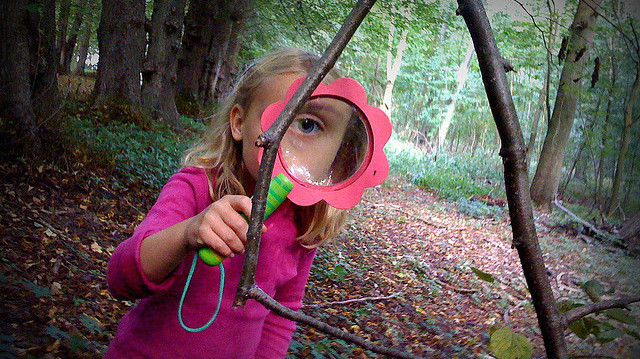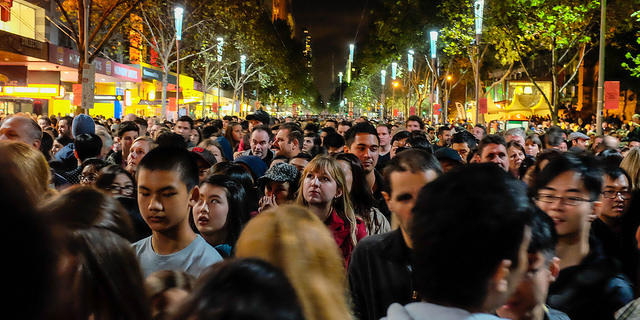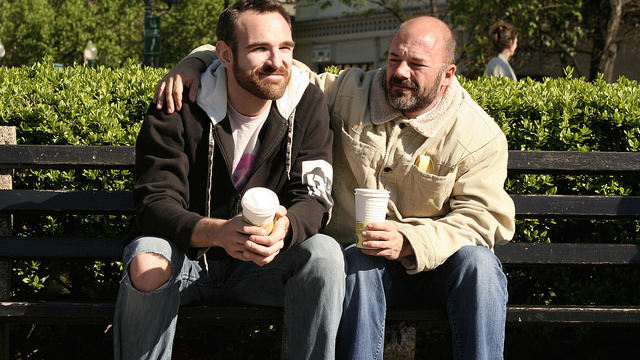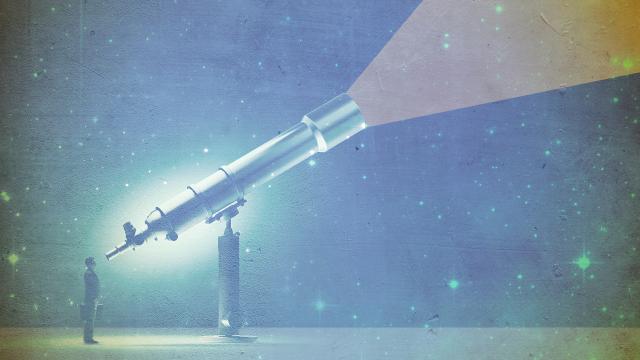It’s easy to not pay attention to the world. We lower our eyes when we walk and avoid eye contact at the supermarket. For most of us, our default state tends to be ignoring what’s around us. But doing so makes us miss out on inspiration and fails to develop our curiosities. Here’s how to train yourself to pay a little more attention to the world around you.
Picture: Mopic, Mads Bodker, Scott Cresswell, Elvert Barnes, Vinoth Chandar.
We know that getting out and taking a walk can boost creativity and a little mindfulness can help with all sorts of things. But neither of those is useful if you’re still gazing at your navel. Being observant means watching people, situations and events, then thinking critically about what you see. We miss a lot in the world while we’re busy shuffling between here and there. While there’s no way to quantify how that affects our well being, it’s clear the more you pay attention, the more often you’ll come up with new ideas. If nothing else, you’ll expand your worldview. First, you have to train yourself to pay attention again.
Train Yourself to Look for the Stuff that Matters to You

Our brains aren’t meant to see everything. We focus on specific things, then filter out everything else. This is great in most cases, because if we paid attention to everything, we’d miss what’s important. However, you can tune your brain to pay attention to new things with a bit of practice.
Whether you’re starting a new job, exploring a new hobby or just trying to expand your skillset, you need to retrain your brain to pay attention to what’s important at that moment. This sounds simple, but it does take a bit of effort. Speaking with NPR, psychologist Dr. Daniel Simons explains:
What you can do… is, you can train people to look for particular kinds of things.
So script supervisors, the people who work on movie sets, know how to look for particular kinds of mistakes that might end up into a movie that would be noticed. And they look for specifically those – and they ignore the other stuff that’s never going to matter, or the stuff that’s never going to end up across a cut.
What they know, that most people don’t, is that their memory is lousy, that they can’t rely on their memory. And they know to take all sorts of notes and keep careful track of the things that are likely to matter.
It might sound counterintuitive that the best way to train yourself to observe more in the world is to learn what to ignore, but that’s the basic idea here. You can’t pay attention to everything, so decide what you want to look for to retrain your eye. When you do, you’ll naturally come up with more ideas for any given subject.
Challenge Yourself to Pay Attention to New Things

Keeping an eye out for “new” things is easier said than done. You can’t just say to yourself, “I’m going to observe the world with new eyes today” and expect it to happen. Instead, you might be better off giving yourself a series of challenges. These challenges can be anything, but it’s probably best to start with something that matters to you. Here are just a few ideas to get you started, compiled partially from this Quora thread and this Medium post.
- Watch people in crowded areas: If the first thing you do when you sit down in a crowded place is pull out your phone, stop. Spend some time taking it all in and watching people. Look at how they act in crowded spaces, how they interact with others, and how they navigate the rush of it all.
- Assign yourself a scavenger hunt: Pick something and look for it throughout your day. This could be anything, broken windows, security cameras or a particular graffiti artist. Find it, take a picture or note it. Look for more. When you’re done, try to figure out why that stuff is there.
- Watch the local news (or read the local paper): It might not seem like it, but the local news is a great way to get to know your city, faults and all. Since they tend to talk about local issues, it’s also a good way to learn about what’s happening in your neighbourhood. This in turn helps you pay attention to all kinds of new things.
- Walk with an expert: Chances are, you have some friends with different careers and hobbies than you. Take a walk with them and they will teach you new things about the space around you. It might be local history, geology, or even typography.
- Take a “soundwalk”: This one sounds a little silly, but teacher Marc Weidenbaum took students around on a soundwalk where they found origin points of sounds, explored the area in a new way and trained their ear to listen for new things.
- Take field notes: We’ve talked about this before, and the idea is pretty simple. Pick a place, sit down, and write or sketch out everything you see. This trains your brain to pay more attention and observe more of the world.
- Take on a 365 Day Photo Challenge: If you’re not really sure where to start, a 365 day photo challenge place to experiment. The basic idea is that you take a photo a day for a full year, with different challenges each day to keep things interesting. It certainly trains you mind to look through a camera lens a little differently.
You can choose any challenge that suits your needs. If you’re an app developer, it’s about paying attention to what people need, if you’re a writer, it’s about paying attention to what people are doing and so on. Don’t be afraid to leave your comfort zone though. Just because you have no aspirations to be a designer doesn’t mean you can’t take a week to notice the typography on local buildings. The trick is to challenge yourself to look at your everyday in a new way.
Learn to Watch People Better

Inanimate objects are one thing, but observing and understanding people is a science unto itself. Most of us are pretty good at observing during high-tension situations, whether it’s during a fight, a first date or a job interview, but we slack off during the everyday interactions. But as former FBI agent Joe Navarro tells us, it’s best to observe both the comfort and the discomfort:
What finally do we assess for? Two things primarily: danger and comfort. Just that? No, but let’s start with that. Simply ask yourself at all times, “How does this situation or this individual make me feel?” For example, you are walking to your car at night and you see someone out of the corner of your eye walking briskly and you sense that you will both intersect. Your limbic brain senses this for you and lets you know something is not right – but you have to heed that inner voice. That discomfort is your brain saying “warning – possible danger” so you become more alert, you look for a well-lit area, and you wisely change your pace or return to the safety of the store.
Assessing for comfort can really open your eyes. When you are with someone new ask yourself, “Does this person make me feel comfortable at all times?” If he or she doesn’t, then the question is “why?” We must never ignore clues that say something is wrong, no matter how bad we want a friendship to work. Your subconscious is always working to protect you, it is there for a reason, but you have to be prepared to observe and recognise what you sense.
We’ve talked plenty about reading body language, detecting lies and reading expressions. Those are all great, but they all also require the more general act of observing. Of course you should pay attention to a conversation, but it’s also worth keeping a watchful eye on everything else that’s happening. It’s not just about keeping yourself safe or spotting inconsistencies. When you’re observing people and paying attention, you’ll notice all kinds of new things about them.
Keep an Eye Out for Patterns

Observing is great and the more you do it, the better you’ll get at it. But it’s far more useful once you can pick out the patterns. Tiny snippets of observations are helpful, but they’re not useful for creative or intellectual endeavours if you don’t have a broader view of how the world works.
Detecting patterns and combining that with your experience is what allows you predict what happens next. The more you observe of the world and people, the better you become at detecting patterns. Subsequently, you get better at predicting what will happen next.
For example, anytime someone talks about reading body language, they will point out that it’s not a universal thing. You have to observe someone for a while, find their individual tics, then make an assumption based on that. If you’re not paying attention and observing, you’ll miss it. A verbal hiccup for one person might mean one thing for one person and another for someone else, so you need to search out the pattern. Maybe someone rubs their nose when they’re bluffing in poker, while a nose rub for someone else might mean they’re angry.
The same goes for anything you see out in the world. Observing the world is just the first step. Until you start piecing all that together into something larger, it’s hard to do anything with the information you gather. For example, it might be interesting that there’s a CCTV on your block, but it’s a lot more interesting that there are CCTVs on every block in your neighbourhood. The more your observe, the more you ask why. The more you ask why, the more you learn. Observing is useful, but the critical thinking that follows is what can help you come up with new ideas and learn more about the world around you.

Comments